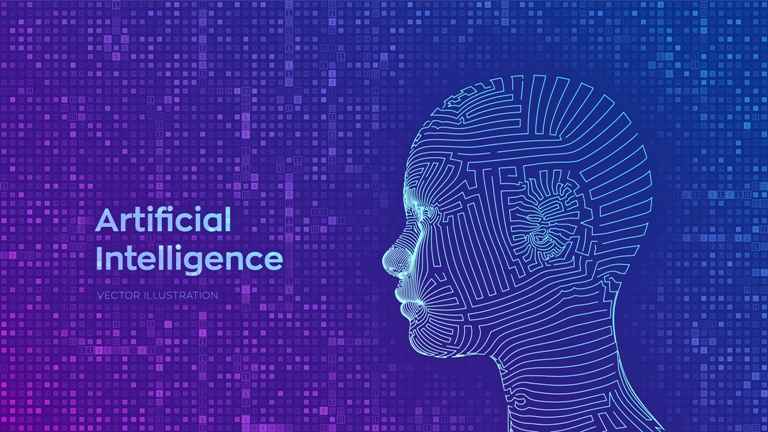The two most significant cutting-edge technologies of the present time are artificial intelligence and machine learning. Due to these two technologies’ beneficial effects, firms must now incorporate them into the creation, testing, and cognitive automation of their applications. In order to improve the processes for mobile app testing, AI and ML have become increasingly important in the future of app testing. AI and machine learning enable faster automation execution and scale speed, efficiency, and reliability for mobile application testing.
Table of Contents
Why do we need AI and ML for App Testing?
The development and testing teams have embraced artificial intelligence and machine learning to gain understanding and apply detecting errors.
Some key benefits of using AI & ML in App Testing –
- It saves time and cost; increasing return on investment
- Enables faster app release to market
- Early detection of potential risks
- Provides quality user experience
- Identifies and eliminates the test case redundancies
- Improves overall app productivity, making the app more reliable

Implementation scenarios of Artificial Intelligence and Machine Learning in App testing
Undoubtedly, AI and ML are going to play an important role in the app testing process, testing methods, and test cases. Let us see how AI/ML are going to impact app test automation testing:
- Log Analysis with AI/ML: Usually a developer performs the log analysis for finding the root cause of the problem caused in the application. This is a slow process as you would need to search through the logs. So, incorporating AI/ML for performing the same and creating unique test cases for performing manual/automation testing, creates a different level of efficiency in this process.
- Test Optimization: Adopting AI/ML to discover redundancies and errors and remove them to optimize test quality.
- Test Coverage: To map and trace user requirements and maximize test coverage, the Requirement Traceability matrix document is prepared to capture all client requirements, usually at the end of the SDLC.
- Predictive Analysis: Combining AI/ML with predictive analysis for data forecasting used to improve operations, delivery time, and sales and mitigate operational costs can provide accuracy and timeliness in the process. It also helps in identifying key areas which need improvements using predictive analysis and prescribed testing parameters.
- Analyzing Defects: AI/ ML also helps in providing in-depth defect analysis to identify the key affected areas in the application and repair those defects for continuous quality improvement.
As we have understood the implementation scenarios of Artificial Intelligence and Machine Learning in App testing, let’s understand the benefits of integrating AI and Machine Learning in App testing.
Finding the right set of people
Having a QA team that has the right skillset of coding is not required while leveraging AI-based test automation technologies. AI gives testers a semi-scriptless or completely scriptless scripting environment.
This helps in accelerating the speed of testing.
The amount of time spent on repeated jobs
Every time a new test automation project arises, regardless of how reusable the components are, teams tend to create a lot of comparable code again and again, which takes a long time.
For example, cross-browser test cases are redundant and hence testers tend to create the same set of test cases again and again.
AI can be used to automatically develop test scripts. AI tools may be programmed and taught based on past project inputs and results to automatically generate test scripts for comparable projects.
Flaky Test
Teams of testers spend hours analyzing whether a failed test was caused by application bugs or poorly prepared test cases. These categories of test failures are known as flaky tests and they cause a release to be on hold needlessly, resulting in software delivery delays.
AI can assist teams in overcoming the problem of flaky tests by developing more resilient test cases and detecting trends in random test failures to accelerate the process.
UI changes necessitate frequent script modifications.
Businesses frequently adjust the app UI to deliver a consistent User Experience (UX), (UI). Even if the change is modest or invisible, it may cause the test scripts to break while executing various operations on the page.
These AI and ML algorithm-based technologies may be trained to detect tiny changes in code or application issues. These technologies can then take appropriate actions, eliminating the need for human interventions in script updates.
Future of Artificial Intelligence and Machine learning in app testing
The below infographic shows how app testing evolved and AI/ML came into the picture:

To keep up with the advancements in technology, machine learning, and artificial intelligence research automation has seen substantial developments. They are modern innovations during the following ten years. As expected, in order to integrate AI/ML with the Software Development Life Cycle, the DevOps team would need to evolve, adapt, and upgrade methods. To determine the usage ratio of AI/ML and coding, new approaches should be adopted collectively. The new techniques ought to work with CI/CD as well.
The AI/ML tools are anticipated to even go beyond the testing capabilities currently available and incorporate security testing as well as other brand-new tests. The fundamental concept is to use AI/ML to enhance code-based app test automation. The way that product development and testing are done is changing as a result of its adoption.
Conclusion:
App testing is evolving significantly, and it’s possible that AI/ML methods may eventually replace most of the work currently performed by human testers. Only knowledgeable data analysts with training in AI/ML techniques will make a difference and have an impact on the software testing industry. Organizations today rely on AI and ML for excellent quality assurance and efficient operation after their implementation produced fantastic app testing results. The application of AI and ML in app testing aids in the development of risk-free apps and improves user experience. The future of software testing is unquestionably AI and machine learning.

